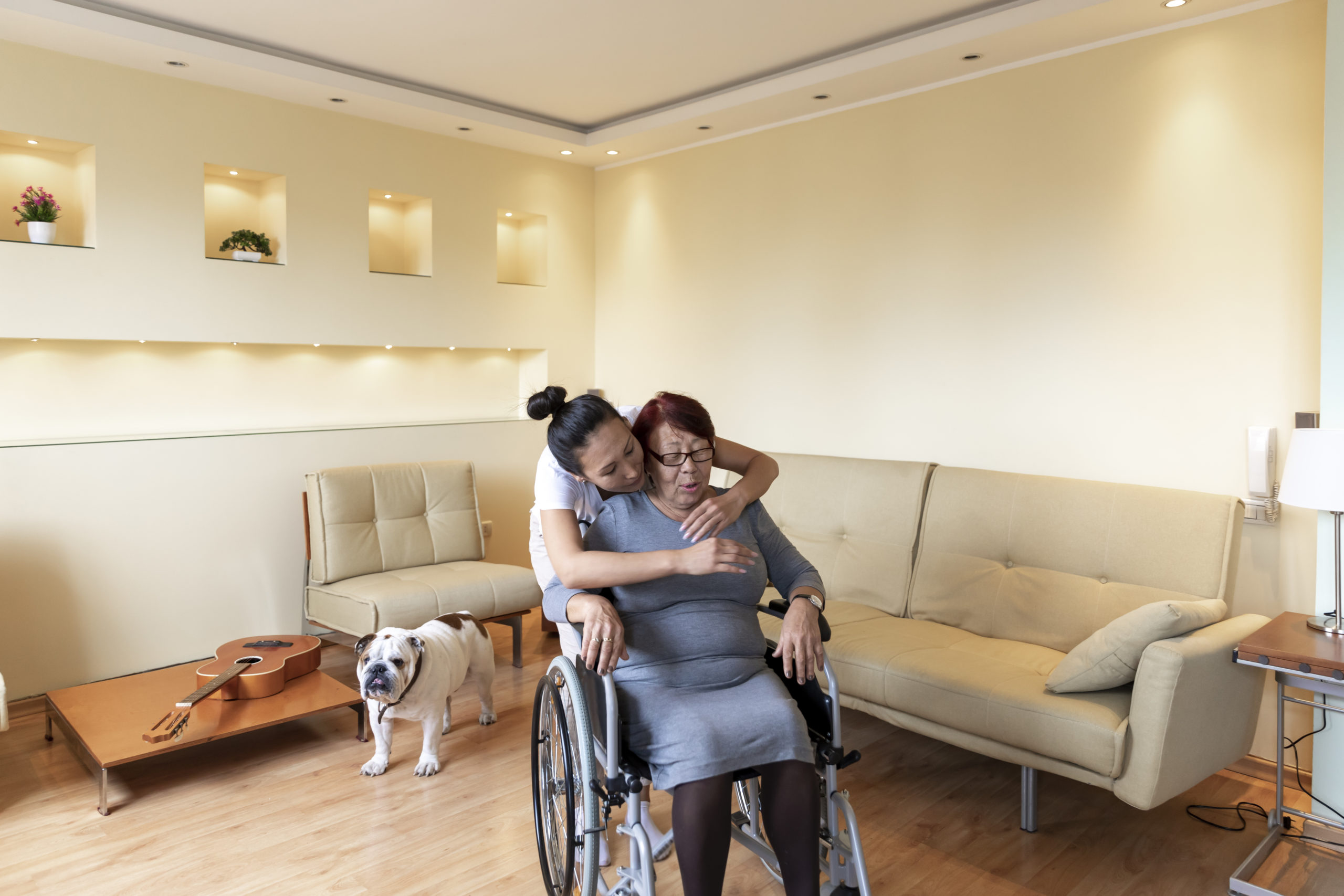Caring for a loved one can be a rewarding and meaningful experience. However, the day in and day out of taking care of someone who is unwell also can be challenging and frustrating and stressful.
It is common for caregivers to experience negative feelings while taking care of an ailing loved one, according to the Family Caregiver Alliance (FCA). These negative emotions can vary greatly, including ambivalence, anger, anxiety, boredom, irritability, depression, disgust, embarrassment, grief, guilt, loneliness, resentment, exhaustion and more. The FCA writes that many caregivers may want to ignore those feelings rather than face them.
“Caregiving can be an emotional roller coaster. On the one hand, caring for your family member demonstrates love and commitment and can be a very rewarding personal experience,” the FCA writes. “On the other hand, exhaustion, worry, inadequate resources, and continuous care demands are enormously stressful.”
Caregivers may push aside their stress because they are busy tending to their loved one’s needs. But when stress is ignored, it has a way of growing and creating greater problems for the caregiver.
“Caring for yourself is one of the most important – and one of the most often forgotten – things you can do as a caregiver. When your needs are taken care of, the person you care for will benefit, too,” writes the FCA.
Signs of Caregiver Stress
The research report “Caregiving in the U.S. 2020,” sponsored by the National Caregiving Alliance and AARP, notes that “caregivers feel the push and pull of providing care on their time, their financial well-being, their health, their family, their work, and their own personal well-being. They may find themselves in need of information, resources, benefits, or programs – but these things are often difficult to find or access, or too expensive to afford.”
These stresses may be compounded by the caregiver’s feelings about their responsibility and about concerns that they are the only ones who may be willing do what needs to be done.
According to the Mayo Clinic, caregiver stress can be exacerbated by risk factors such as:
- “Living with the person you are caring for
- Social isolation
- Having depression
- Financial difficulties
- Higher number of hours spent caregiving
- Lack of coping skills and difficulty solving problems
- Lack of choice in being a caregiver.”
Caregiver stress, the Mayo Clinic writes, can show up in many ways: feeling overwhelmed, exhaustion, sleep issues, weight loss or gain, irritation, losing interest in activities, sadness, headaches, body pain, and/or substance abuse.
“Too much stress, especially over a long time, can harm your health,” the Mayo Clinic writes. “As a caregiver, you’re more likely to experience symptoms of depression or anxiety. In addition, you may not get enough sleep or physical activity, or eat a balanced diet – which increases your risk of medical problems, such as heart disease and diabetes.”
Self-Care and Stress Management Tips for Family Caregivers
It serves no one if your stress levels rise to a place where they significantly impact your health and/or your ability to care for your loved one. Because caregiving can be all-encompassing, it may feel nearly impossible to take the time to focus on stress reduction. However, if you approach your daily caregiving routine with stress-reduction in mind, you may begin to ease the burden of this difficult work.
However, there are strategies that can help you reframe your situation and reduce your stress, including:
1. Acknowledge that you cannot control your loved one’s health.
The Cleveland Clinic writes that caregivers need to understand that often their involvement will not alter the health or happiness of their loved one. “Be realistic about your loved one’s disease, especially if it is a progressive disease such as Parkinson’s or Alzheimer’s. Acknowledge that there may come a time when the patient requires nursing services or assisted living outside the family home.”
2. Recognize that your hard work matters.
“Even if you feel your support and actions are not making a difference, they are likely making a difference for your friend or family member,” according to Psychiatry.org. “Your loved one may be hurting and not clearly recognize what you’re doing or may not be able to express appreciation. But knowing you are there for them can be important in helping [them].”
3. Give yourself regular pats on the back.
According to the Harvard Health Blog, self-compassion is the foundation for taking care of yourself. “Self-compassion means giving yourself credit for the tough, complex work of caregiving, stepping away from the self-critical, harsh inner voice, and allowing yourself time – even if it’s just a few minutes a day – to take care of yourself.”
4. Remember that you do not have to do this alone.
Family and friends can provide support in multiple ways. “Be prepared with a list of ways that others can help you, and let the helper choose what he or she would like to do,” writes the Mayo Clinic. “For instance, a friend may offer to take the person you care for on a walk a couple of times a week. Or a friend or family member may be able to run an errand, pick up your groceries or cook for you.”
5. Maintain social connections.
To counteract feelings of isolation and avoid burnout, the Harvard Health Blog recommends you maintain social connections. “Realizing that you’re not alone and that others are going through similar experiences nurtures your ability to be self-compassionate,” according to the blog. “Hospitals and local organizations often offer caregiver support groups for family and caregivers.”
6. Prioritize self-care.
“Set goals to establish a good sleep routine, find time to be physically active on most days of the week, eat a healthy diet and drink plenty of water,” writes the Mayo Clinic. Also, the Mayo Clinic recommends that you see your doctor regularly and tell them that you are a caregiver and about any concerns or symptoms you may have.
7. Find ways to bring joy into your daily life, even if it is in short spurts.
Pamper yourself. Read a good book. Listen to music. Make time to do things that make you happy. “Don’t forget about yourself because you are too busy caring for someone else. Set aside time for yourself, even if it’s just an hour or two,” writes the Cleveland Clinic. “Remember, taking care of yourself is not a luxury. It is an absolute necessity for caregivers.”
Finding a healthy balance as a family caregiver may seem difficult while managing the day to day of caring for somebody you love. However, reframing your perspective and taking regular time to care for yourself can allow you to recharge and refresh, so that you can feel better while also being an even better caregiver for your loved one.
If you’d like to learn more about the importance of caring for yourself as a caregiver, read these GeneSight blog posts:
Our articles are for informational purposes only and are reviewed by our Medical Information team, which includes PharmDs, MDs, and PhDs. Do not make any changes to your current medications or dosing without consulting your healthcare provider.
The GeneSight test must be ordered by and used only in consultation with a healthcare provider who can prescribe medications. As with all genetic tests, the GeneSight test results have limitations and do not constitute medical advice. The test results are designed to be just one part of a larger, complete patient assessment, which would include proper diagnosis and consideration of your medical history, other medications you may be taking, your family history, and other factors.
If you are a healthcare provider and interested in learning more about the GeneSight test, please contact us at 855.891.9415. If you are a patient, please talk with your doctor to see if the GeneSight test may be helpful.








